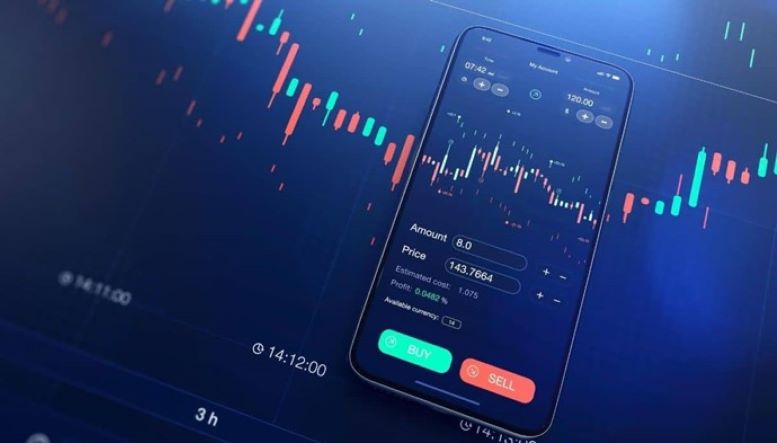A Comprehensive Guide to Direct Market Access
Direct Market Access (DMA) has emerged as a preferred choice for traders seeking more control, transparency, and efficiency in their trading activities.
This comprehensive guide explores the intricacies of DMA, delving into its advantages, challenges, and the critical considerations when selecting a DMA broker.
Additionally, we provide a detailed comparison of top DMA brokers, focusing on their features and regulatory status.
What is Direct Market Access (DMA)?
Direct Market Access (DMA) is a type of trading arrangement that allows traders to place orders directly onto an exchange’s order book without the intervention of market makers or other intermediaries.
This access provides traders with the ability to see the depth of the market, including the buy and sell orders at different price levels, which enhances transparency and allows for potentially better pricing and faster execution times.
How DMA Differs from Traditional Trading
In traditional trading, brokers often act as intermediaries, managing orders and sometimes adding a markup to the spread.
DMA, however, eliminates this intermediary step, providing traders with direct access to market data and order execution.
This setup can reduce costs associated with spreads and provide more accurate price discovery.

The Role of Technology in DMA
The evolution of technology has been pivotal in the rise of DMA.
Advanced trading platforms now offer real-time data, sophisticated charting tools, and algorithmic trading capabilities, making DMA a feasible option for retail traders and not just institutional investors.
These platforms can handle the rapid execution of orders and provide various tools necessary for analyzing market conditions.
Benefits of Direct Market Access
DMA offers numerous benefits, making it an attractive option for traders.
These include enhanced market transparency, faster execution times, better pricing, and greater control over trading activities.
Let’s explore these advantages in more detail.
Enhanced Market Transparency
DMA provides traders with access to the full order book, allowing them to see all buy and sell orders, not just the best bid and ask.
This transparency helps traders make more informed decisions, as they can gauge the supply and demand dynamics more accurately.
Faster Execution Times
Because orders are placed directly into the market without intermediary delays, DMA offers faster execution times.
This speed is particularly beneficial for strategies that rely on quick trades, such as scalping or high-frequency trading (HFT).
Better Pricing
Direct access to the market means that traders can interact with multiple liquidity providers and potentially achieve better pricing.
This is because DMA allows for more competitive pricing by exposing traders to the true market conditions without intermediary markups.
Greater Control
DMA provides traders with more control over their trades.
They can choose the exact price levels at which to enter or exit the market, place orders at specific points in the order book, and modify or cancel orders without the intervention of a broker.
• Faster execution times, crucial for time-sensitive trading strategies.
• Direct interaction with liquidity providers, potentially leading to better pricing.
• Advanced trading platforms that support algorithmic trading and other complex strategies.
• Reduced risk of price manipulation, offering a more level playing field.
Challenges and Considerations
Despite its advantages, DMA is not without challenges.
These include higher costs, the complexity of trading platforms, and the need for a more in-depth understanding of market dynamics.
It is crucial for traders to weigh these factors carefully when considering DMA as a trading option.
Higher Costs
DMA services typically come with higher costs, including platform fees, commissions, and sometimes minimum account requirements.
While these costs can be offset by the potential for better pricing and faster execution, they are an important consideration, especially for traders with smaller accounts.
Complexity of Trading Platforms
DMA platforms are often more complex than those used in traditional trading, requiring a more profound understanding of market mechanics and trading strategies.
This complexity can be a barrier for novice traders, who may find the sophisticated tools and features overwhelming.
Market Risks
DMA trading exposes traders to the full volatility of the market.
While this transparency can be advantageous, it also means that traders need to be adept at managing risks, such as slippage, which can occur when there is a sudden change in the price of an asset.
• Requires a deeper understanding of market mechanics and trading strategies.
• Not all retail traders have access due to minimum capital requirements.
• Complex platforms can be overwhelming for beginners.
• Risk of significant financial loss if not managed properly.
Choosing a DMA Broker
Selecting the right DMA broker is crucial for ensuring a positive trading experience.
The following factors should be considered:
Regulatory Compliance
Regulation is a key factor in the safety and reliability of a broker.
Traders should choose companies that are regulated by reputable financial authorities, such as the Financial Conduct Authority (FCA) in the UK, the Australian Securities and Investments Commission (ASIC), or the Cyprus Securities and Exchange Commission (CySEC).
Regulated trading firms are required to adhere to strict standards, which help protect traders’ funds and ensure fair trading practices.
Trading Platforms
The quality and capabilities of the trading platform are critical in DMA trading.
Traders should look for platforms that offer real-time data, advanced charting tools, and support for various order types.
The platform’s user interface should be intuitive and provide easy access to essential features.
Cost Structure
Understanding the cost structure is vital, as it impacts overall profitability.
This includes commission rates, platform fees, and any other associated costs.
Some brokers may offer lower commissions but charge higher fees for data feeds or additional services.
Customer Support
Reliable customer support is essential, especially when dealing with technical difficulties or questions about trade execution.
Look for brokers that offer comprehensive support, including multiple contact channels (such as phone, email, and live chat) and support during trading hours.
Educational Resources
For traders new to DMA or looking to expand their knowledge, the availability of educational resources can be invaluable.
Many offer webinars, tutorials, e-books, and other materials that can help traders understand the nuances of DMA trading.
Market and Asset Coverage
A key consideration when choosing a DMA broker is the range of markets and asset classes available.
DMA brokers typically offer access to:
- Equities: Shares of companies listed on major stock exchanges, providing opportunities to trade based on company performance and market trends.
- Forex: Currency pairs that enable trading based on macroeconomic factors, interest rates, and geopolitical events.
- Commodities: Physical goods like gold, oil, and agricultural products, often traded as a hedge against inflation or economic instability.
- Indices: Baskets of stocks representing specific market sectors or economies, used to gauge overall market performance.
- Cryptocurrencies: Digital currencies such as Bitcoin, Ethereum, and others, offering high volatility and potential for significant returns.
- Futures and Options: Contracts representing a commitment to buy or sell an asset at a future date, used for hedging or speculative purposes.
Comparison of Top DMA Brokers
To aid in selecting a suitable DMA broker, we’ve compiled a detailed table comparing some top brokerage firms in the market.
This table includes information on key features, regulatory status, and other relevant aspects.
| Broker | Key Features | Regulation | Other Features |
|---|---|---|---|
| Admiral Markets | Wide range of financial instruments, advanced platforms | FCA, ASIC, CySEC | Comprehensive educational resources |
| Axi | Competitive spreads, support for algorithmic trading | FCA, ASIC | Excellent customer support, low fees |
| BlackBull Markets | ECN trading environment, fast execution speeds | FMA, FSA | Offers VPS for enhanced trading speeds |
| FP Markets | Multiple trading platforms, including MT4 and MT5 | ASIC, CySEC | Low commissions, extensive asset coverage |
| FXOpen | Supports cryptocurrency trading, low spreads | FCA, ASIC, CySEC | Advanced trading tools, including automated trading |
| Global Prime | Transparent trading conditions, focus on DMA | ASIC | No dealing desk execution, strong customer service |
| IC Markets | High liquidity, competitive spreads, fast execution | ASIC, CySEC | Supports a wide range of trading platforms |
| Pepperstone | Extensive range of trading instruments, advanced platforms | FCA, ASIC, CySEC | Low-latency execution, strong regulatory oversight |
| ThinkMarkets | Proprietary ThinkTrader platform, competitive spreads | FCA, ASIC, FSCA | Extensive market analysis tools |
| Tickmill | No requotes, low spreads, high-speed execution | FCA, CySEC, FSA | Offers extensive educational content |
Technological Integration and Tools
Advanced DMA brokers provide state-of-the-art trading platforms that support:
- API Integration: Allows for the development of custom trading strategies and automated systems. API access is crucial for traders looking to implement sophisticated trading algorithms or to integrate external data sources.
- Algorithmic Trading: Features for implementing automated trading strategies based on specific criteria. This is particularly beneficial for traders who rely on rapid execution and want to minimize the impact of human error.
- Advanced Charting Tools: Comprehensive charting capabilities for technical analysis, including indicators like moving averages, Bollinger Bands, and Fibonacci retracements.
- Mobile Trading: Access to trading platforms via mobile apps, ensuring traders can manage their positions on the go. Mobile platforms should offer the same functionality as desktop versions, including real-time data and charting tools.
Regulatory Considerations and Security
Regulatory compliance is crucial when selecting a DMA broker, as it ensures that the firm operates under strict guidelines that protect investors.
Reputable companies are regulated by financial authorities such as:
- Financial Conduct Authority (FCA) in the UK, known for its stringent regulations that protect traders’ funds and ensure transparency.
- Australian Securities and Investments Commission (ASIC), which oversees brokers in Australia, ensuring they adhere to high standards of financial conduct.
- Cyprus Securities and Exchange Commission (CySEC), which regulates firms in Cyprus and provides a level of assurance regarding the safety of funds and the integrity of trading practices.
- Financial Markets Authority (FMA) in New Zealand, ensuring that companies operate fairly and transparently.
Security Features
Security is paramount in online trading.
Reputable DMA brokers offer several security features to protect client funds and personal information:
- Two-Factor Authentication (2FA): Enhances account security by requiring a second form of verification in addition to the password.
- Data Encryption: Protects sensitive information by encrypting data transmitted between the trader and the broker.
- Segregated Accounts: Ensures that client funds are kept separate from their operating funds, reducing the risk of loss if the company faces financial difficulties.
- Investor Compensation Schemes: Provides a safety net for traders by compensating them in the event of insolvency, subject to certain limits.
Educational and Training Resources
Educational resources are crucial for traders looking to understand DMA and elevate their trading skills.
Brokers often provide a range of materials, including:
- Webinars and Seminars: Live sessions that cover various aspects of trading, from basic concepts to advanced strategies.
- Tutorials and E-books: Step-by-step guides and comprehensive books on trading principles, platform use, and market analysis.
- Market Analysis: Daily or weekly analysis of market trends, news, and economic events that can impact trading decisions.
- Demo Accounts: Allow traders to practice trading in a risk-free environment, using virtual money to explore the platform and develop strategies without financial risk.
Customer Support and Community Engagement
Customer support is a vital aspect of a good trading experience, especially in the fast-paced world of DMA trading.
The availability and quality of support can significantly impact a trader’s ability to resolve issues quickly and efficiently.
Look for trading firms that offer:
- 24/7 Support: Availability of customer service at all times, which is crucial for traders operating in different time zones or during market hours.
- Multiple Channels: Including phone, email, live chat, and even social media, providing flexibility in how traders can reach support teams.
- Knowledgeable Staff: Support teams should be well-trained and knowledgeable about the trading platforms, market conditions, and the specific needs of DMA traders.
In addition to traditional support, many brokers offer community features, such as forums or social trading platforms, where traders can share insights, strategies, and experiences.
These communities can be a valuable resource for learning and networking.
User Experience and Interface
The user experience of a trading platform can significantly impact trading efficiency and satisfaction.
Key considerations include:
- Platform Usability: The platform should be intuitive and easy to navigate, with a clear layout and accessible tools.
- Customization Options: Traders should be able to customize the platform according to their preferences, such as adjusting chart settings, creating watch lists, and setting up alerts.
- Performance and Reliability: The platform should be stable, with minimal downtime, and capable of handling high-speed trade executions, especially during volatile market conditions.
Future Trends and Innovations in DMA Trading
The landscape of DMA trading is continuously evolving, with new technologies and trends shaping the future of trading.
Some of these innovations include:
- Artificial Intelligence and Machine Learning: These technologies are increasingly used to analyze market data, predict trends, and execute trades. AI-driven algorithms can process vast amounts of information quickly, making them valuable for high-frequency trading strategies.
- Blockchain and Decentralized Finance (DeFi): The transparency and security features of blockchain technology are being explored in the trading sector, potentially leading to more secure and transparent trading platforms.
- Environmental, Social, and Governance (ESG) Factors: As ESG investing gains popularity, companies are incorporating ESG criteria into their trading platforms, allowing traders to consider these factors in their decision-making processes.
Glossary of Key Terms
Understanding the terminology used in DMA trading is crucial for effective communication and comprehension.
Here are some key terms:
- Order Book: A list of all buy and sell orders for a particular asset, showing the quantity and price at each level.
- Market Depth: The volume of buy and sell orders at various price levels, indicating the liquidity of the market.
- Liquidity Provider: An entity, such as a bank or financial institution, that provides buy and sell quotes for assets, contributing to market liquidity.
- Slippage: The difference between the expected price of a trade and the price at which it is actually executed, often occurring in volatile markets.
- Algorithmic Trading: The use of computer algorithms to automatically execute trades based on predefined criteria, such as price movements or trading volume.
Conclusion
Direct Market Access offers a powerful trading solution that combines transparency, control, and efficiency.
While it presents certain challenges, such as higher costs and the need for advanced knowledge, the benefits can be significant for those willing to invest the time and resources.
DMA is particularly well-suited for experienced traders, institutional investors, and those using sophisticated trading strategies like high-frequency trading.
As with any trading method, it is essential to conduct thorough research and choose a broker that aligns with your trading goals and requirements.
FAQ
What is the main advantage of DMA?
The primary advantage of DMA is increased transparency and control over trade execution, allowing traders to interact directly with market liquidity and obtain better pricing.
Is DMA suitable for beginners?
DMA is generally more suited for experienced traders due to its complexity and the need for a deeper understanding of market mechanics.
Are there any special requirements for using DMA?
Yes, using DMA often requires a higher level of trading knowledge, a larger initial capital, and sometimes, a more stringent vetting process by brokers.
Can DMA be used for all types of assets?
DMA is typically available for stocks, forex, and CFDs, but availability may vary by broker and region. It's best to check with the specific DMA broker for the exact assets available.
How does DMA affect trading costs?
While DMA can offer better pricing on trades, it may also come with higher costs in terms of commissions, platform fees, and additional charges for advanced trading tools.
What is the difference between DMA and traditional brokerage services?
The main difference is that DMA allows traders to place orders directly on the exchange, offering more transparency and control, whereas traditional brokers often route orders through market makers or other intermediaries.
What kind of trading strategies benefit most from DMA?
Strategies that require quick execution, such as high-frequency trading, scalping, and market making, benefit most from the transparency and speed offered by DMA.
Are there specific risks associated with DMA?
Yes, DMA trading involves risks such as potential slippage, market volatility, and the need for a thorough understanding of the trading platform and market dynamics. These risks can be mitigated with proper knowledge and strategy.
Can retail traders access DMA?
Yes, while DMA is traditionally associated with institutional trading, many brokers now offer DMA services to retail traders, though it may come with higher minimum deposit requirements and fees.
How does one assess the quality of execution in DMA trading?
Quality of execution in DMA trading can be assessed by factors such as the speed of trade execution, the extent of slippage, the competitiveness of spreads, and the consistency of order fills. It's important to review these factors regularly to ensure optimal trading conditions.
What are the typical costs associated with DMA trading?
Typical costs include platform fees, commissions per trade, data feed charges, and sometimes additional costs for advanced trading tools. It's crucial to compare these costs across different brokers to find the best deal for your trading needs.
Resources
- What is direct market access (DMA) in trading
- Investopedia: Direct Market Access (DMA): Definition, Uses, and Benefits
- How DMA trading works
- Wikipedia: DMA in the brokerage industry
- London Stock Exchange: Direct Market Access
Customer Reviews
Article written, edited and reviewed by
Disclaimer:The information provided on this site should not be distributed or used by any individual in any country or jurisdiction where such distribution would violate local laws or regulations.
Last updated: February 5, 2026



